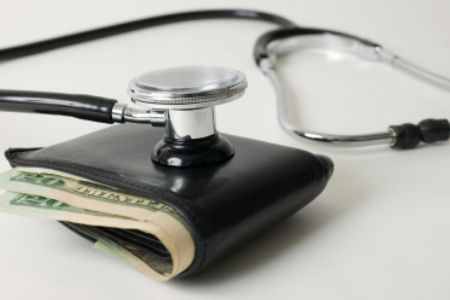Submitted by Anne Landman on
 When a patient checks into a hospital or goes to see a doctor, they are typically handed a booklet called "Notice of Privacy Practices" and are asked to sign a document acknowledging that they received the information. Patients assume that these "privacy practices" are in place to protect their personal information and that doctors and hospitals will keep their information in strictest confidence. In reality, patients usually overlook fine print contained in these documents that say that hospitals can share their personal information and use it for fundraising purposes. Thus someone who checks into the hospital for a heart ailment can later be solicited to help pay for expensive new hospital equipment or a new diagnostic wing. Fundraising professionals call this "high touch direct mail," but others think gathering marketing information this way is disrespectful to patients. Dr. Steven Fugaro, an internist and president of the San Francisco Medical Society, says the practice raises ethical concerns. "When you go to Macy's or Wal-Mart or buy a car, it has come to be expected that your name will be used for commercial purposes. But ... people come to us because they are sick. They have an expectation that their names will be kept private, even the fact that they were treated by the doctor or a hospital." Most patients are unaware that health care privacy laws are being used to harvest marketing data.
When a patient checks into a hospital or goes to see a doctor, they are typically handed a booklet called "Notice of Privacy Practices" and are asked to sign a document acknowledging that they received the information. Patients assume that these "privacy practices" are in place to protect their personal information and that doctors and hospitals will keep their information in strictest confidence. In reality, patients usually overlook fine print contained in these documents that say that hospitals can share their personal information and use it for fundraising purposes. Thus someone who checks into the hospital for a heart ailment can later be solicited to help pay for expensive new hospital equipment or a new diagnostic wing. Fundraising professionals call this "high touch direct mail," but others think gathering marketing information this way is disrespectful to patients. Dr. Steven Fugaro, an internist and president of the San Francisco Medical Society, says the practice raises ethical concerns. "When you go to Macy's or Wal-Mart or buy a car, it has come to be expected that your name will be used for commercial purposes. But ... people come to us because they are sick. They have an expectation that their names will be kept private, even the fact that they were treated by the doctor or a hospital." Most patients are unaware that health care privacy laws are being used to harvest marketing data.
